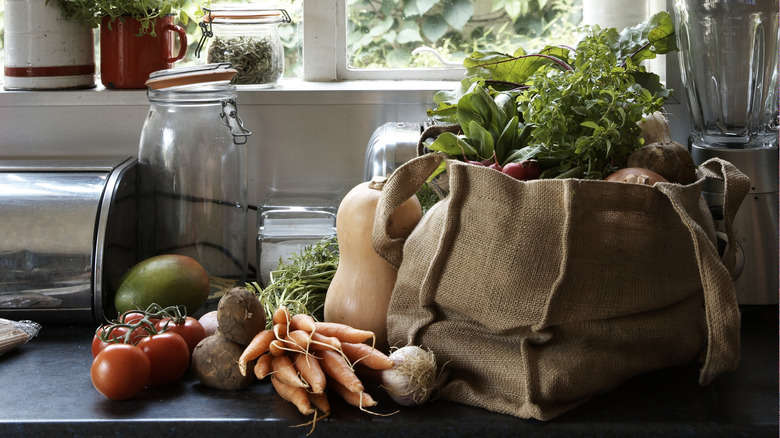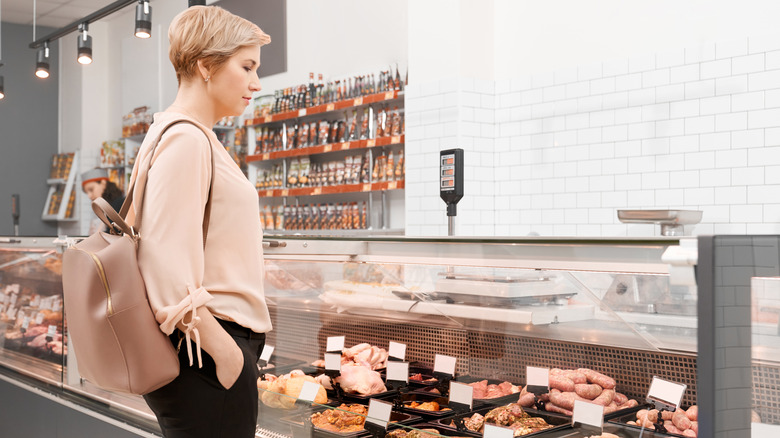The Raw Meat Rule You Should Follow When Using Reusable Shopping Bags
Making the move to reusable shopping bags is a good decision, most of the time. As noted by the National Geographic Society, reusable bags cut down on litter of plastic, one-time-use bags in oceans, landfills, and even in the park around your home. Some cities in the U.S. and Europe have even passed laws limiting their use. That's a solid reason to move toward reusable bags, but how do you minimize the risk of germs on these bags, especially if they go with you on every shopping trip?
A specific concern is raw meat. Heading to the grocery store often means bringing home some meat for the week, and you'll need a bag to put them in before you take them home. That cotton reusable bag could be a problem, especially if a leak occurs. Even the outside of a package of meat could have germs on it simply because of how it was packaged. So what's worse — risking exposure to germs from meats or using the checkout bags? There could be a better alternative.
Bag before you bag
Sana Mujahid, Ph.D. and the food safety research manager at Consumer Reports, emphasizes these risks, stating, "Juices can drip from packages of raw meat and contaminate the outside of the packing and the bag." However, that doesn't mean plastic checkout bags is your only option.
Instead, consider these two steps. When possible, place packages of meat into thin, plastic produce bags before putting them into a reusable bag. That helps minimize the transfer of bacteria from the meat to the bag. And, as long as they're clean, these bags are as recyclable as checkout bags. Don't stop there, though. With raw meat, you cannot be too careful. Make sure you wash cloth grocery bags like this in hot water after use. Properly washing reusable bags helps to reduce any transfer of germs.
An alternative, if your grocery store has this option, is to simply put raw meat into single-use plastic bags. While that may not be environmentally friendly, it is a way to safeguard your health. You can also designate just one reusable bag (still washing regularly) for all of your uncooked meats and seafood to minimize contamination of other food products.

